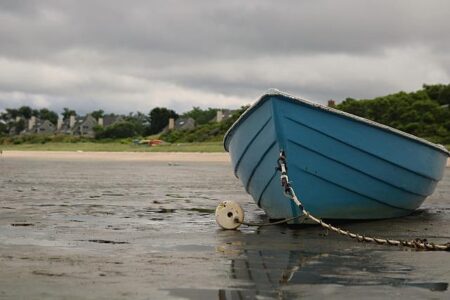Balancing Advancement and Environmental Conservation in Sierra Leone
A notable harbour project in Sierra Leone,largely financed by Chinese investments,highlights the complex relationship between infrastructure growth and environmental stewardship. As this West African nation strives to enhance its maritime capabilities and economic prospects, concerns are mounting regarding the potential ecological impacts of such a venture. Critics warn that this ambitious harbour initiative could threaten local ecosystems, disrupt marine life, and endanger the livelihoods of coastal communities. With construction underway, stakeholders face a pressing question: can Sierra Leone attract foreign investment while safeguarding its precious natural resources? This article delves into the ongoing discourse by presenting perspectives from government officials, environmental advocates, and local residents amid increasing global attention.
Concerns Over Chinese Funding for Sierra Leone’s Harbour Project
The recent decision to develop a harbour in Sierra Leone has raised significant alarm among both local populations and international environmental groups due to its dependence on Chinese financial backing. As construction progresses on this infrastructure endeavor, various parties express apprehension about its potential effects on the region’s rich biodiversity and fragile ecosystems. The primary concerns include:
- Habitat Destruction: The building process may threaten wildlife habitats along coastlines renowned for their marine diversity.
- pollution Risks: Increased port operations could elevate pollution levels that might negatively impact both terrestrial and aquatic environments.
- Land Use Changes: Expanding infrastructure may encroach upon essential agricultural lands, exacerbating food security issues for surrounding communities.
Local environmental organizations have called for more thorough assessments alongside robust management strategies aimed at mitigating negative consequences. A recent community meeting highlighted the need for open communication with residents concerned about how these developments will affect their daily lives. To further clarify potential hazards associated with harbour construction, we present an overview table summarizing key environmental risks:
| Environmental Risk | Description |
|————————-|————————————————————–|
| Water Quality | Increased runoff from construction activities may contaminate nearby waters. |
| Ecological Disruption | Construction efforts might disturb native species and alter existing ecosystems. |
| Community Relocation | Expansion of port facilities could necessitate relocating local populations.|
The Urgent Need to Safeguard Marine Ecosystems and Local Economies
The establishment of this new harbour has raised red flags among conservationists as well as community members who rely on fishing or tourism-related activities for their income. Key issues include:
- Diminished livelihoods: Declining fish stocks due to habitat disruption or overfishing practices intensified by increased access for foreign fleets.
- Displacement Concerns: Heightened port activity may lead to displacing families as land is repurposed for industrial use.
- Cultural Impact: Alterations to coastal landscapes pose risks to customary lifestyles that have been preserved over generations.
Local voices continue advocating against these developments while emphasizing their long-term implications on both ecology and economy.
Sustainable Development Strategies Amidst Environmental Challenges
As worries escalate regarding ecological repercussions stemming from this China-backed harbour project in Sierra Leone, it becomes crucial to explore sustainable development strategies designed effectively mitigate these risks. Community members alongside advocacy groups propose an integrated approach prioritizing economic growth without compromising ecological integrity through several recommendations:
- Diligent Environmental Impact Assessments (EIAs): Conduct thorough evaluations before initiating projects; understanding potential consequences allows informed decision-making.
- Civic Engagement: Involving residents throughout planning processes fosters support while ensuring sustainable outcomes align with community needs.
- The Adoption of green Technologies: Utilizing renewable energy sources along with eco-friendly building practices can significantly reduce carbon footprints associated with new constructions.
- Create Conservation areas: Establishing protected zones near harbours helps maintain biodiversity levels within affected regions.
Moreover , collaboration between governmental entities alongside non-profits or private investors is crucial when developing frameworks promoting sustainability initiatives focused on environmentally responsible practices such as :
| Initiative | description |
|————————|————————————————————–|
| Eco-conscious Infrastructure | Design structures aimed at minimizing negative impacts on surrounding environments.|
| Long-Term Monitoring Programs | Implement ongoing assessments post-construction evaluating overall health conditions.|
| Educational outreach | Initiate programs raising awareness about sustainable methods within local communities.|
A Conclusion: Finding Harmony Between Growth and Preservation
the proposed Chinese-funded harbour project presents significant challenges concerning ecological integrity amid pressing economic aspirations within contemporary Sierra Leone—raising alarms among concerned citizens alike! While weighing possible benefits against detrimental effects remains paramount moving forward; clarity must guide discussions involving all parties involved so effective safeguards become integral components during developmental phases ahead! Decisions made now will not only influence future economic trajectories but also reflect commitments towards preserving habitats essential not just today—but also into generations yet unborn! as events unfold further updates will be provided closely monitoring progress surrounding this pivotal issue impacting many lives across West Africa’s shores!







